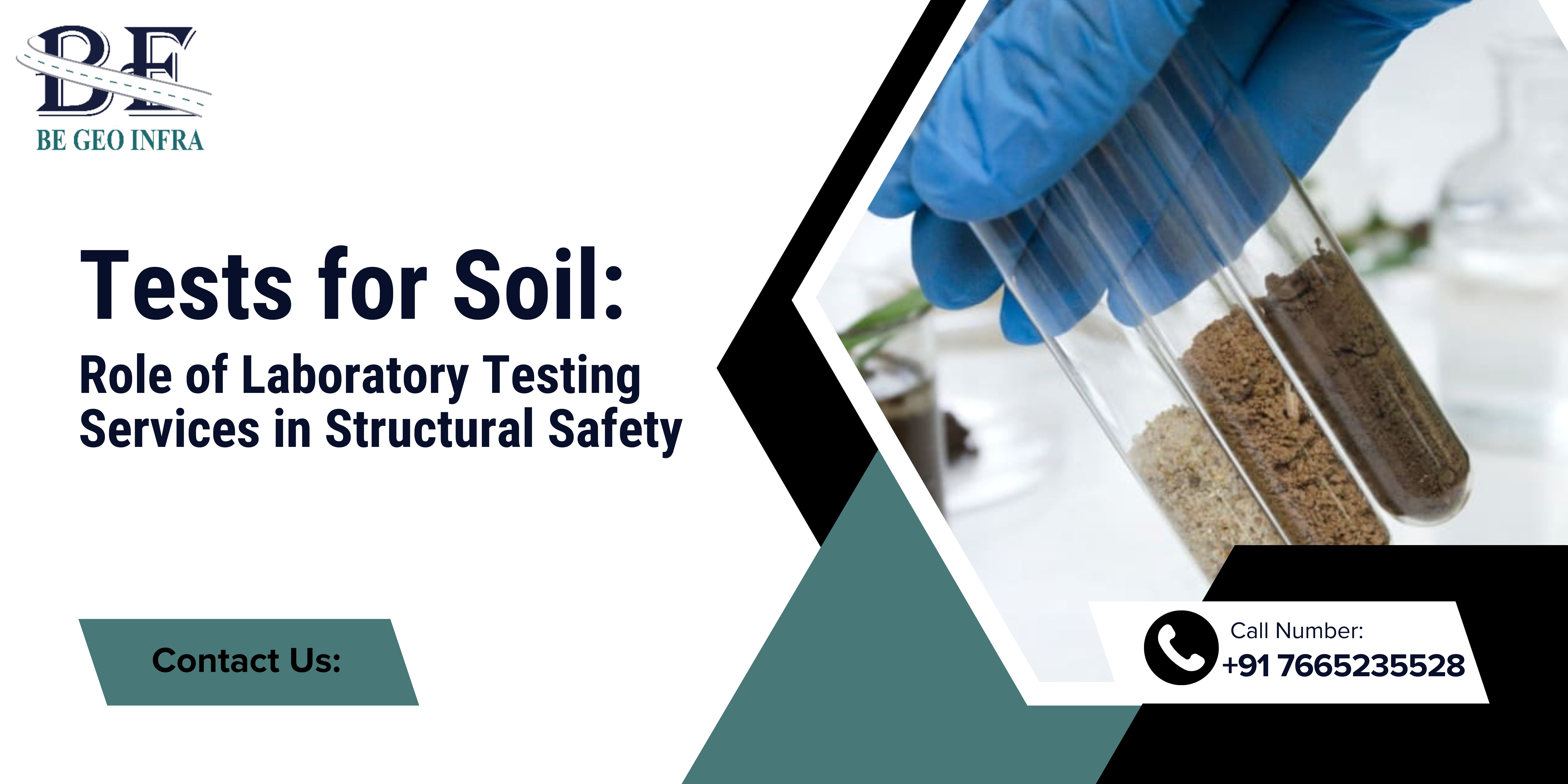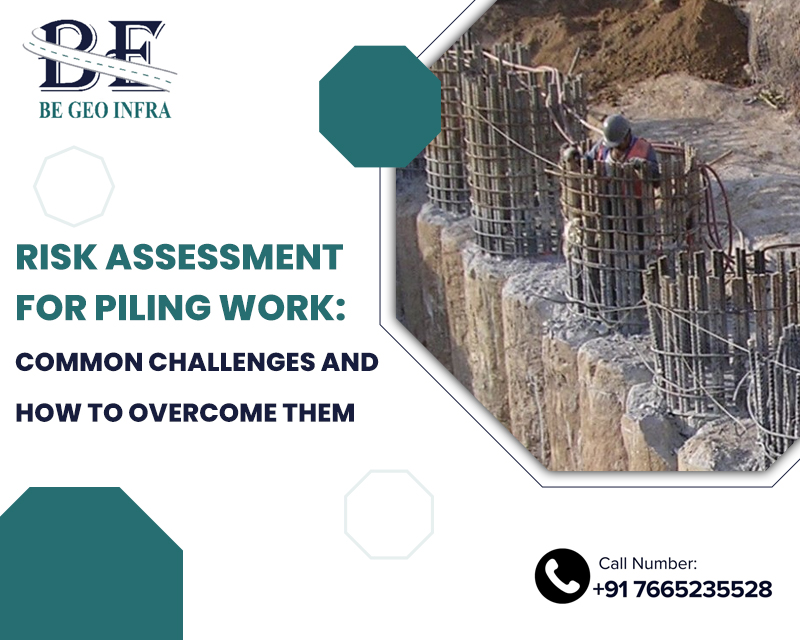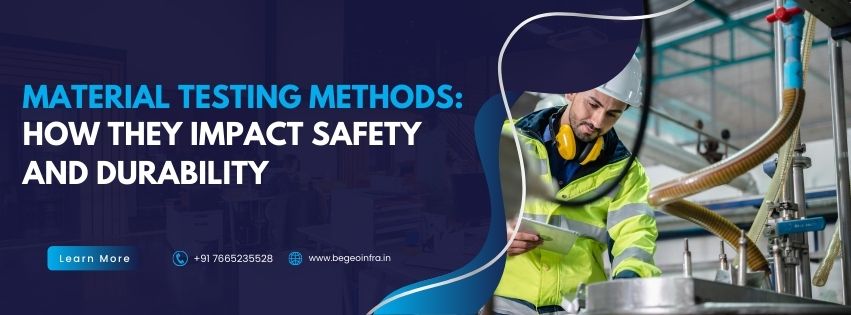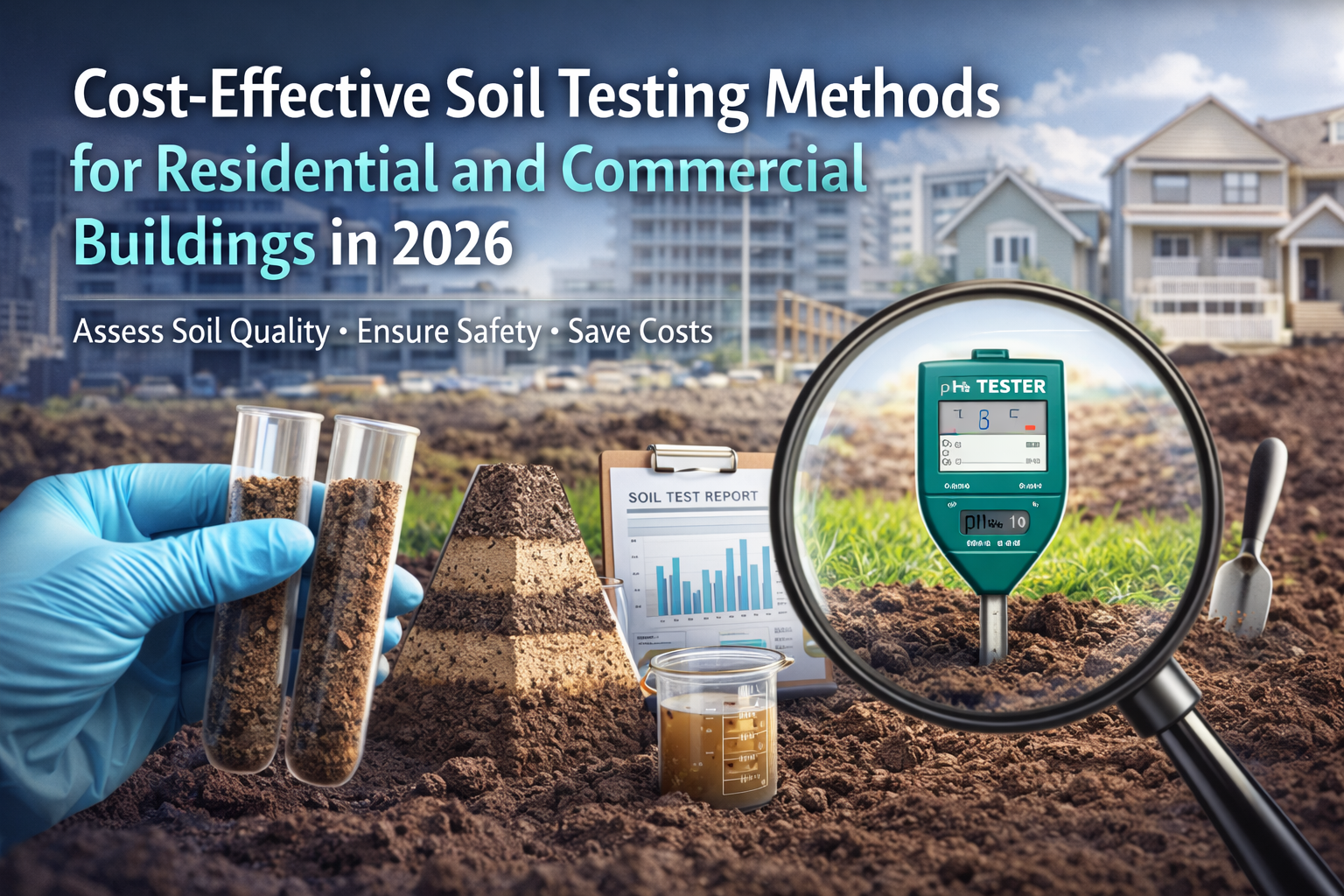January 24, 2025

Types of Material Testing: A Complete Guide for Beginners
When it comes to building strong structures, ensuring product quality, or maintaining safety standards, Material Testing plays a vital role. Whether you are in the construction industry, manufacturing, or engineering, understanding different types of material testing helps ensure that the materials used can withstand various conditions.
In this beginner-friendly guide, we will explore the different types of material testing, including destructive and non-destructive testing, common material testing methods, the role of material testing equipment, and how materials testing services help businesses like yours maintain quality and safety.
What is Material Testing?
Material Testing refers to a series of techniques used to assess the physical, mechanical, and chemical properties of materials. It helps determine the suitability of a material for a specific application. Testing is done either during the selection of materials or as part of quality control during or after manufacturing.
Begeo Infra ensures all materials used in projects meet the highest standards through rigorous testing using modern equipment and trusted methods.
Why is Material Testing Important?
-
Ensures Safety: Prevents failures that may lead to accidents.
-
Improves Quality: Guarantees that only quality materials are used.
-
Reduces Waste: Helps in selecting the right materials, minimizing costly replacements.
-
Compliance: Meets industry and government regulations.
-
Saves Cost in the Long Run: Detecting weak materials early avoids bigger problems later.
Types of Material Testing
Material testing is broadly classified into two categories:
1. Destructive Testing
As the name suggests, destructive testing involves damaging the material to analyze its properties. These tests are used when it is important to know how a material behaves under extreme conditions.
Common Destructive Testing Methods:
-
Tensile Test: Measures how much force a material can withstand before breaking.
-
Compression Test: Checks how materials perform when they are compressed.
-
Bend Test: Tests the ductility and strength of materials.
-
Impact Test: Measures how materials respond to sudden force or shocks.
-
Hardness Test: Determines a material’s resistance to deformation.
Destructive testing is essential when you want to know the limits of a material and how it performs under real-life conditions. Though the material is destroyed, the insights gained are invaluable for safety and design.
2. Non-Destructive Testing (NDT)
Non-Destructive Testing is used when we want to inspect and evaluate the material's properties without causing any damage. This is especially useful for finished products or expensive materials.
Common Non-Destructive Testing Methods:
-
Ultrasonic Testing (UT): Uses sound waves to detect internal flaws.
-
Radiographic Testing (RT): Uses X-rays or gamma rays to see inside the material.
-
Magnetic Particle Testing (MPT): Detects surface and near-surface flaws in ferromagnetic materials.
-
Dye Penetrant Testing (DPT): Highlights cracks or defects on the surface using a visible dye.
-
Eddy Current Testing: Ideal for detecting surface and near-surface flaws in conductive materials.
NDT is widely used in industries like aerospace, construction, and automotive where material integrity is critical but cannot be compromised by destruction.
Common Material Testing Methods
Whether destructive or non-destructive, material testing methods vary based on the property being tested.
1. Mechanical Testing
-
Measures strength, hardness, and elasticity.
-
Includes tensile, compression, and impact tests.
2. Thermal Testing
-
Tests how a material reacts to heat or cold.
-
Includes expansion, thermal conductivity, and heat resistance tests.
3. Chemical Testing
-
Checks the composition of a material.
-
Useful for identifying corrosion potential or contamination.
4. Electrical Testing
-
Used for materials that need to conduct electricity.
-
Measures resistivity, conductivity, and insulation properties.
Each method provides different insights and is selected based on the purpose of the test and the nature of the material.
Material Testing Equipment
To conduct accurate and reliable tests, specialized material testing equipment is used. These machines and tools vary depending on the type of test being performed.
Common Equipment Includes:
-
Universal Testing Machine (UTM): For tensile and compression tests.
-
Hardness Testers: For Brinell, Rockwell, and Vickers hardness tests.
-
Impact Testing Machine: For Charpy and Izod impact tests.
-
Ultrasonic Flaw Detectors: Used in NDT.
-
Microscopes and Spectrometers: For examining the microstructure and chemical makeup.
At Begeo Infra, we use industry-grade equipment to deliver accurate and reliable test results that support our commitment to quality and safety.
Materials Testing Service: Why You Need Professionals
While some basic tests can be performed in-house, most companies prefer using professional materials testing services for the following reasons:
-
Accuracy: Professionals use calibrated machines and follow industry standards.
-
Expertise: Trained experts can interpret the results correctly.
-
Compliance: Certified testing labs ensure your materials meet legal standards.
-
Documentation: Proper records help in audits, certifications, and client transparency.
Begeo Infra partners with trusted testing laboratories to ensure all materials undergo certified testing before being used in any construction or engineering project.
When Should You Use Material Testing?
-
Before selecting a material for a new project.
-
During production to maintain quality.
-
When evaluating supplier materials.
-
After installation to ensure performance.
-
In case of a material failure to find the root cause.
By integrating testing into every phase of a project, you reduce risk and improve outcomes.
Final Thoughts
Understanding the different types of material testing helps businesses like yours ensure quality, performance, and safety. From destructive testing to non-destructive testing, from lab-based evaluations to field assessments using modern material testing equipment, each test plays a critical role in decision-making.
At Begeo Infra, we believe that strong infrastructure starts with strong materials. That’s why we ensure every material used in our projects is tested through certified material testing methods and services.

Need help? Call us Today at+91 7665235528
for inquiries and support. We’re here to assist you.
























